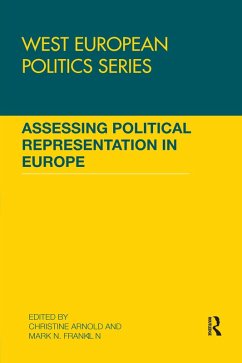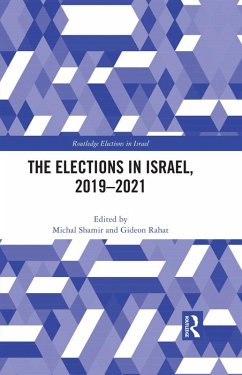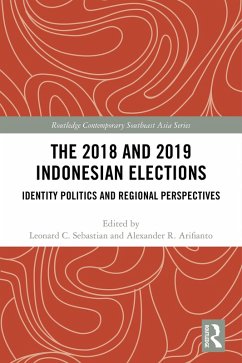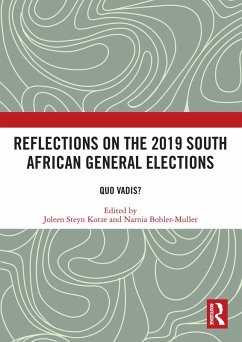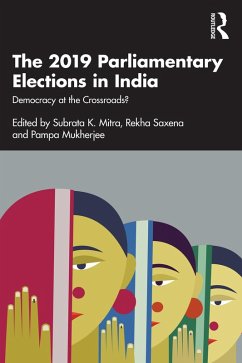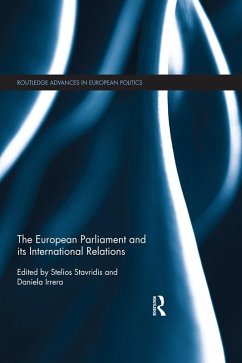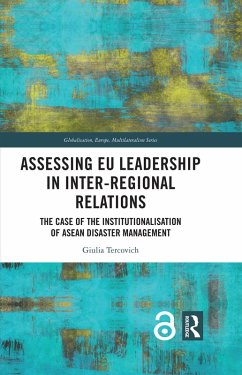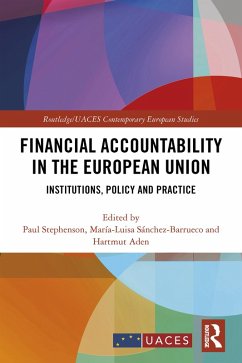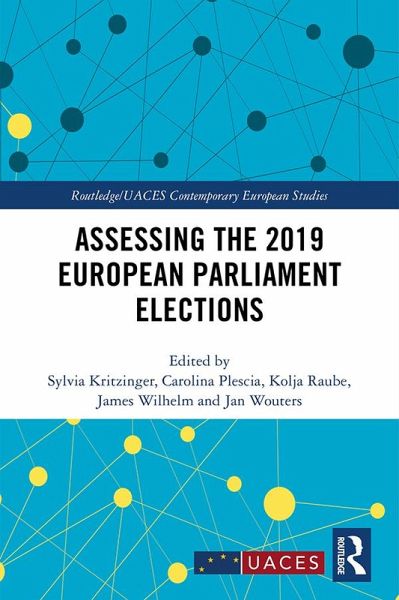
Assessing the 2019 European Parliament Elections (eBook, ePUB)
Versandkostenfrei!
Sofort per Download lieferbar
41,95 €
inkl. MwSt.
Weitere Ausgaben:

PAYBACK Punkte
21 °P sammeln!
Informed by and against the backdrop of the 2019 European Parliament (EP) elections, this innovative book provides a critical assessment of where Europe stands in terms of the quest to achieve democratic legitimacy. Since the 2014 EP elections, the European Union (EU) has experienced multiple crises, which arguably have undermined its legitimacy.The 2019 EP elections were hence seen as a crucial moment in the EU's attempts to show resilience and regain trust. Using political science and legal frames of analysis, Assessing the 2019 European Parliament Elections provides an understanding and ass...
Informed by and against the backdrop of the 2019 European Parliament (EP) elections, this innovative book provides a critical assessment of where Europe stands in terms of the quest to achieve democratic legitimacy. Since the 2014 EP elections, the European Union (EU) has experienced multiple crises, which arguably have undermined its legitimacy.
The 2019 EP elections were hence seen as a crucial moment in the EU's attempts to show resilience and regain trust. Using political science and legal frames of analysis, Assessing the 2019 European Parliament Elections provides an understanding and assessment of the current politico-legal framework, and its impact on European elections. Furthermore, using original data, it provides a timely examination of public opinion issue priorities and voting behaviour at the 2019 EP elections in eight countries. Given the critical conjuncture that the 2019 EP elections represent, this volume provides a key contribution to understanding both the dynamics surrounding the elections, as well as voters' responses, and informs debates on European politics, for example, second-order elections, democratic legitimacy and political representation.
This book will be of key interest to scholars and students of EU politics, public administration, European studies, European law, and sociology, along with practitioners in politics, journalism, and policy analysis.
The 2019 EP elections were hence seen as a crucial moment in the EU's attempts to show resilience and regain trust. Using political science and legal frames of analysis, Assessing the 2019 European Parliament Elections provides an understanding and assessment of the current politico-legal framework, and its impact on European elections. Furthermore, using original data, it provides a timely examination of public opinion issue priorities and voting behaviour at the 2019 EP elections in eight countries. Given the critical conjuncture that the 2019 EP elections represent, this volume provides a key contribution to understanding both the dynamics surrounding the elections, as well as voters' responses, and informs debates on European politics, for example, second-order elections, democratic legitimacy and political representation.
This book will be of key interest to scholars and students of EU politics, public administration, European studies, European law, and sociology, along with practitioners in politics, journalism, and policy analysis.
Dieser Download kann aus rechtlichen Gründen nur mit Rechnungsadresse in A, B, BG, CY, CZ, D, DK, EW, E, FIN, F, GR, HR, H, IRL, I, LT, L, LR, M, NL, PL, P, R, S, SLO, SK ausgeliefert werden.




